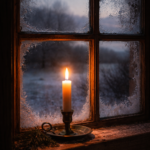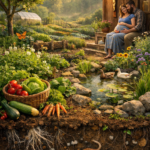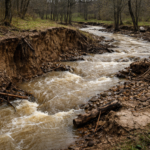Potassium (K) is one of the three essential macronutrients that plants need for healthy growth, alongside nitrogen and phosphorus. It plays a crucial role in various physiological processes, making it vital for the overall health of your garden. Here’s a closer look at potassium’s benefits and some organic sources you can use to enrich your soil.
Why Potassium is Essential for Plants
Water Regulation: Potassium helps regulate the opening and closing of stomata, which controls water loss and maintains hydration in plants.
Stress Tolerance: It enhances plants’ ability to withstand stress from drought, disease, and extreme temperatures.
Nutrient Transport: Potassium aids in the movement of nutrients and carbohydrates within the plant, promoting overall growth and development.
Fruit Quality: It contributes to the quality of fruits and vegetables, improving their size, color, and taste.
Organic Sources of Potassium for Your Garden
Incorporating organic sources of potassium into your garden can be both effective and environmentally friendly. Here are some excellent options:
Banana Peels: Chop them up and bury them in the soil. They are rich in potassium and can decompose quickly.
Wood Ash: A byproduct of burning wood, wood ash contains potassium and can help raise soil pH, so use it judiciously.
Kelp Meal: This seaweed-based fertilizer is not only a great source of potassium but also provides trace minerals.
Compost: Well-made compost can supply a balanced array of nutrients, including potassium, as it breaks down.
Greensand: This mineral-rich sand is a slow-release source of potassium and also improves soil structure.
Muriate of Potash: While it’s a mined product, it’s often used in organic gardening due to its high potassium content.
Conclusion
Incorporating potassium into your garden through these organic sources can significantly enhance plant health and productivity. By understanding the role of potassium and utilizing these natural fertilizers, you can create a thriving garden ecosystem. Happy gardening! 🌱
If you have any more questions about gardening or specific plants, feel free to ask!





